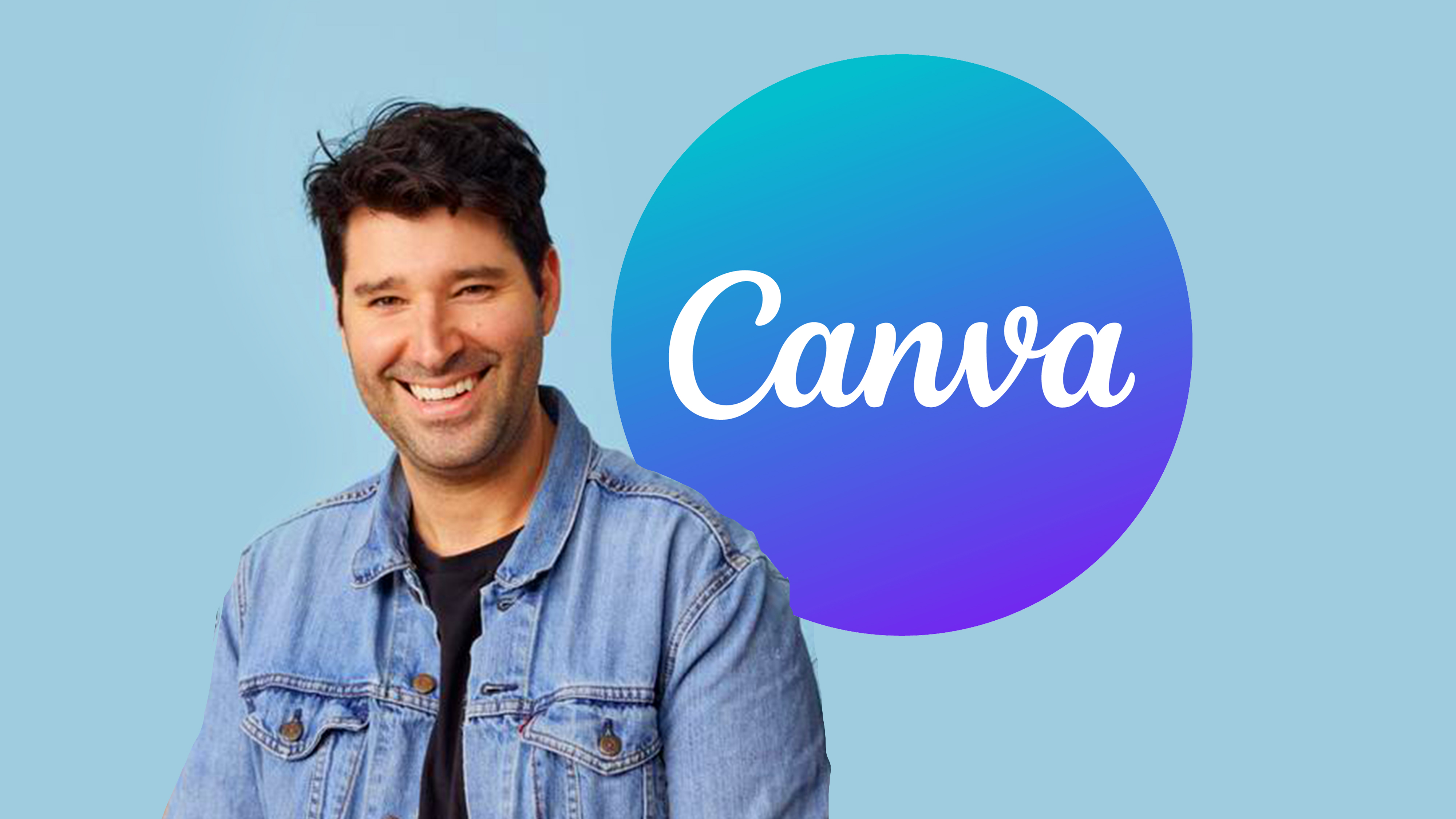
Canva has had an eventful few months. In March, the Australian design platform unveiled a whole suite of new branding templates and AI-powered tools, with its Magic Edit feature enjoying particular popularity on TikTok. And now, hot off the heels of its acquisition of Flourish, the company has introduced a host of new data visualisation tools. Along with these new features, Canva also this month shared plans to rapidly accelerate growth in Europe.
We visited Canva's brand new London campus, the company's first European hub, and spoke to founder Cliff Obrecht about what sets Canva apart from the competition (including the likes of Adobe Creative Cloud) and, of course, the future of AI in design. For the latest lowdown on the design tool, check out our Canva review.

Should artists and designers be worried about the rise of AI-generated art?
I totally understand the concern with this stuff. When we launched Canva, there were very similar concerns, because we were putting the power of visual communication into the hands of people that typically hadn't had that power before. Before Canva, it was only the Adobe suite that was available, but we don't believe design is something that's bound by the tools you use. We believe design is bound by creativity and your ability to actually have an idea and communicate that. We really think the introduction of new technology essentially just enables people to be able to visually express themselves. And hopefully AI means designers get to work on the higher-end stuff and do the stuff they do best.

Speaking of Adobe, what sets Canva apart from Creative Cloud?
Well, we invented this space; we created an easy-to-use design tool 10 years ago that was accessible to the whole world, when before that, it was high priced, boxed software that was incredibly expensive. And so we were the ones that truly democratise design and visual communication and we'll continue to do that. The next era of that is democratising other things that were incredibly difficult, such as data visualisation. It used to take weeks of work for a consultancy or an engineer and a designer to achieve, but now we can enable it with a click of a button.
Is Canva for pros?
We certainly don't see Canva as a straight-up replacement for tools like Figma or Adobe, but pros' projects can be scaled through Canva. What we are great at is being the place where assets are created. Designers use Canva a lot for template design. But if they're creating a really rich illustration or something like that, often they'll import that into Canva, and when they need to put that in the hands of the social team, or the sales team or the HR team, for example, they set up the base templates and the guidelines that then can be used by all people in HR sales, etc.
A business card is a great example. When a designer created a master business card design 10 years ago, they would actually have to change the text on every business card, you could only do that in InDesign or in Photoshop. Now, the designer can do the master work, and then smaller changes can be made by different teams in Canva.
Text-to-image generation has changed so much in 1 year. What do you think the future of AI looks like for design?
AI is not going away. And so I think organisations need to essentially adopt AI in an ethical way that that essentially ensures rights owners are fairly compensated. In Canva were all about offering control, and it is really hugely focused on ethical AI and a bunch of the stuff we've done around image generation, we're open sourcing service, that's to sort of help the rest of the industry kind of go down that ethical path. And we're not certainly the ones that have pioneered these models, but we certainly need to implement them.
I think it's in its infancy so everyone's kind of making a big song dance of AI, but it's really just another fundamental technology shift that will is already being started to be embedded in every every product and in the way everyone works.







